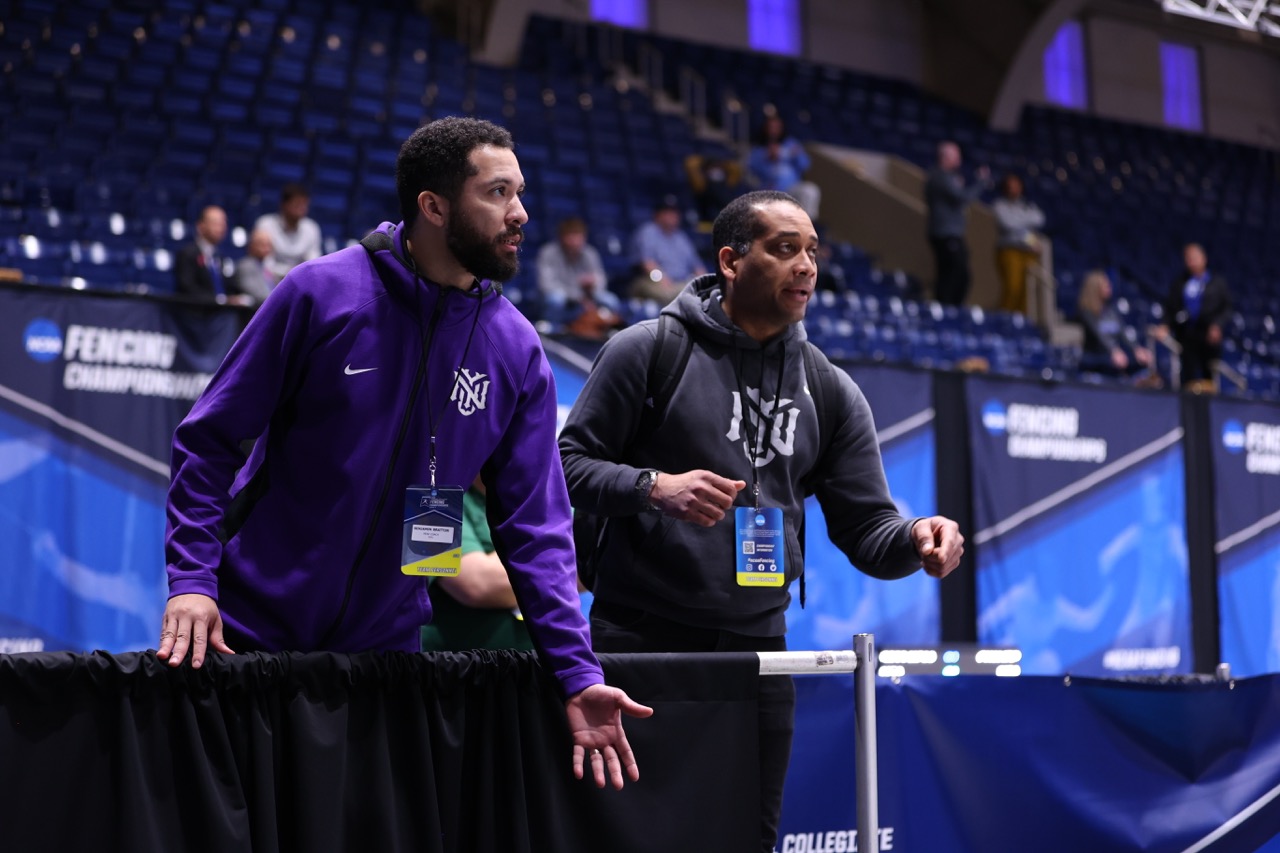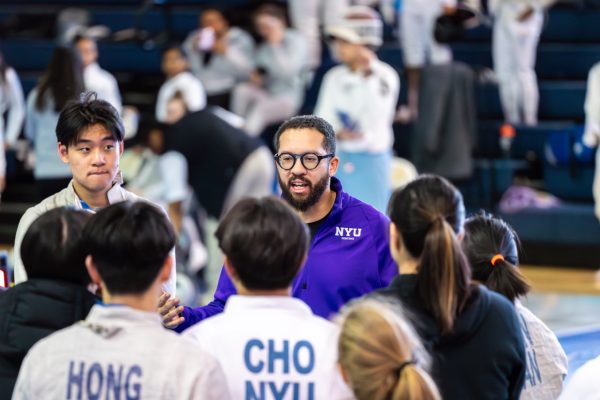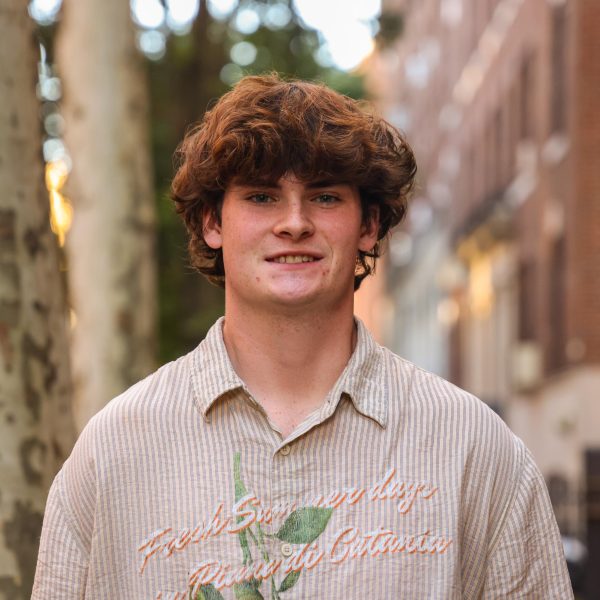Under the mask: A conversation with NYU’s trailblazing head fencing coach
under the arch
Under the mask:
A conversation with NYU’s trailblazing head fencing coach
Fencing head coach Ben Bratton, the first African American to win an epee fencing world championship title, is paving the way for future athletes.
Logan Holland, Deputy Sports Editor | Dec. 6, 2024

While sports like football, baseball and basketball dominate the media landscape, fencing dominates at NYU. The university’s fencing team is one of the most written-about in the country, with multiple Olympians and Division I national champions. Its current head coach, Ben Bratton, was the first African American epee fencer to win a world championship in U.S. history in 2012, and has led the Violets to numerous top-20 finishes in the NCAA Tournament every year since his arrival.
Last season, Bratton was named the USFCA Division III Men’s Coach of the Year, with his squad dubbed the D-III Men’s Team of the Year. The Queens native has shattered barriers in a sport traditionally underrepresented by minorities and, after a distinguished fencing career, continues to inspire the next generation of athletes.
Bratton sat down with WSN to discuss his achievements and how they led him to NYU Athletics.
This interview has been edited for length and clarity.
WSN: How did you discover fencing?
Bratton: My mother met [NYU alum and Olympic medalist Peter Westbrook] when I was really young. She was impressed by his professionalism and accomplishments in such a unique space. My mother frequently reminded me when I was old enough, I’d learn how to fence. Sure enough, on my 10th birthday, she took me to the New York Fencers Club and my fencing journey began.
My relationship with fencing and passion developed over time. Initially, I wasn’t sure I liked it but was curious. I had been involved in sports growing up but never got the development necessary to excel at a higher level until I joined the foundation.
The foundation recognized my abilities and fostered them. For a young person, that’s so important. It’s one thing to have a dream for yourself, but it’s so much more powerful when there’s a community who believes in you and actively invests in your potential. I felt like I was on a path toward something great.

Bratton continued playing the sport at the foundation up until college, before joining the fencing team at St. John’s University. He fenced for all four years before going professional when he graduated in 2007.
WSN: What challenges did you face as a fencer?
Bratton: I grew up in Queens, so commuting every day and balancing academics with a growing passion for fencing was intense — I was taking hour-and-a-half train rides from where I lived, all the way to the Upper West Side. But when you really like something, you’re willing to make those sacrifices.
Bratton later founded Fencing 101 in 2012, a program that teaches fencing at public schools and youth centers in Harlem and Brooklyn.
In 2012, Bratton was one of four Americans to lead the U.S. epee fencing team to a victory in the world championship in Kyiv, Ukraine. Bratton was the only African American on the team.
WSN: What was it like competing in a sport where minorities are historically underrepresented?
Bratton: It never made me hesitant. As I started to excel and navigate higher levels, I often found myself in rooms where I was one of, if not the only, person who looked like me. I understood pretty early on that we live in a world riddled with inequities, but in fencing, it didn’t matter how much money you had, your background or the color of your skin. If you were better, if you worked harder, you could win.
Concluding his professional career as an eight-time member of the U.S. National Team, Bratton chose another medium to channel his passion for the sport: coaching. Bratton had been casually coaching since he was 17, but decided to try it professionally after his competitive career ended. Bratton joined NYU as an assistant coach in 2021 and was named head coach of the men’s and women’s fencing teams the following year.
WSN: What made you pursue coaching?
Bratton: It always leads back to Peter because he was so formative in shaping how I operate. One of the things Peter demanded was that we give back. I realized how much I was getting out of coaching. Working with students who were where I’d been a decade earlier gave me perspective. You share your experiences, watch others grow and it hits you — those hard moments weren’t for nothing.
Contact Logan Holland at [email protected].

Logan Holland is a sophomore studying journalism and politics at the College of Arts & Science. When he is not in the WSN office, you may spot him...























































































































































